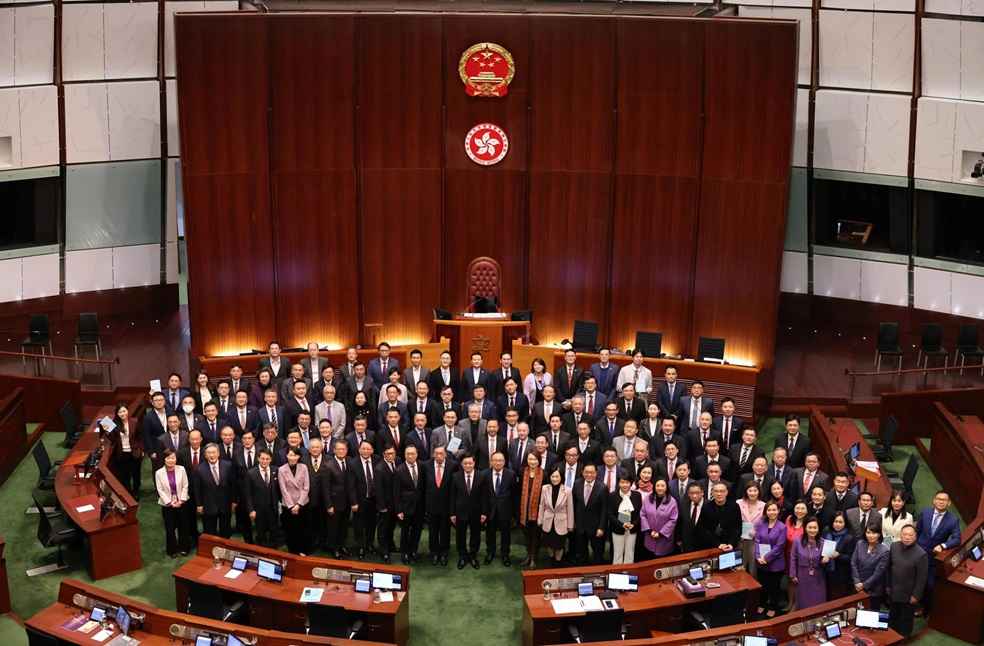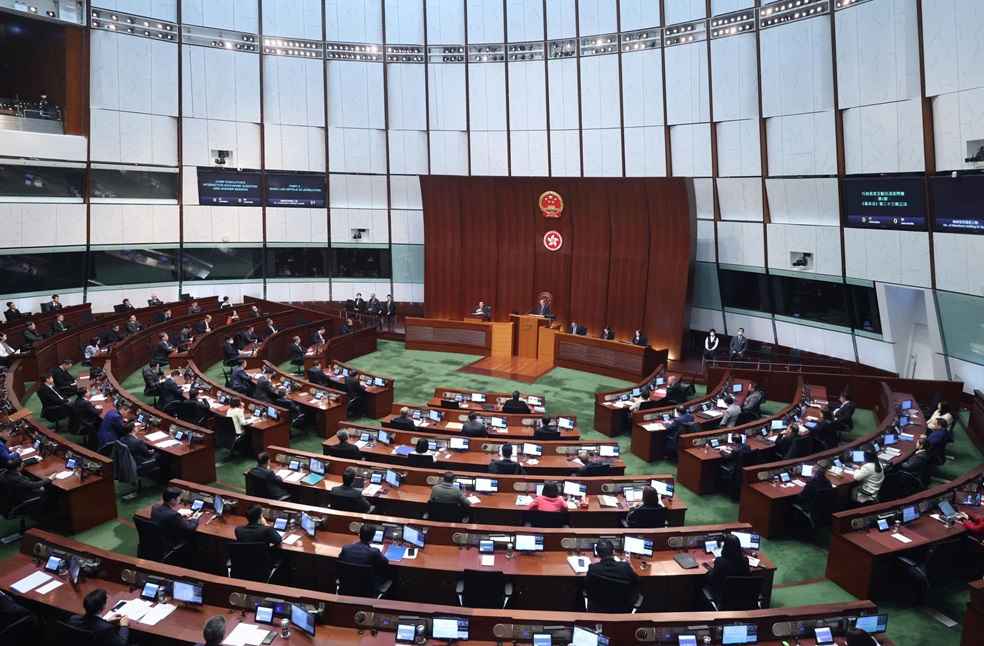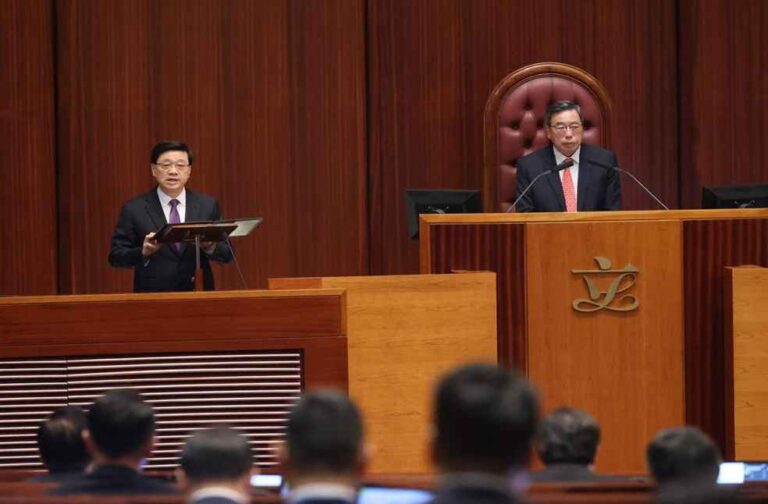Hong Kong: The Legislative Council of Hong Kong has unanimously passed the Safeguarding National Security Law, which grants the government expanded powers to suppress dissent. The law includes new provisions on treason, espionage, sedition, state secrets, and external interference.
The Chief Executive of Hong Kong, John Lee, stated that, “Today is a historic moment for Hong Kong.” He further added that the law would become effective in March, which would penalise five major crimes.
This law grants the government more power to quash dissent. It is widely perceived as the latest step in a sweeping political crackdown that was triggered by pro-democracy protests in 2019. Notably, this new law comes in addition to a similar one imposed by Beijing four years ago, which has already silenced opposition voices in the economic hub.

Critics raised concerns that the Article 23 legislation poses a threat to the liberties of Hong Kong, which is under China’s rule. The bill was presented to the 90-member council, consisting primarily of pro-China loyalists after a month-long public consultation. Hong Kong’s leader urged the council to enact the bill at ‘full speed.’ The legislation was passed unanimously by 88 lawmakers and the council president.
The law imposes strict penalties for a wide range of activities that authorities consider threats to national security. The most severe penalties, including life imprisonment, are reserved for offences such as treason and insurrection.
A minor crime, such as possessing seditious publications, can lead to several years in prison. Certain provisions of the law allow for criminal prosecution for acts committed anywhere in the world. Legislative Council President Andrew Leung expressed his belief that all lawmakers were proud to have participated in this ‘historic mission.’

Several foreign governments and human rights organisations have criticised Article 23 for its vagueness, remarking that it could be used to suppress critics. Additionally, some critics fear that this new law will further undermine the civil liberties that China agreed to uphold for 50 years following the return of the former British colony in 1997.
Sarah Brooks, Amnesty International’s China director, commented that, “With this draconian legislation, the Hong Kong government has delivered another crushing blow to human rights in the city. This is a devastating moment for the people of Hong Kong, hundreds of thousands of whom have previously marched through the streets to demonstrate against repressive laws, including an incarnation of this one in 2003. Today they lost another piece of their freedom – any act of peaceful protest is now more dangerous than ever.”



